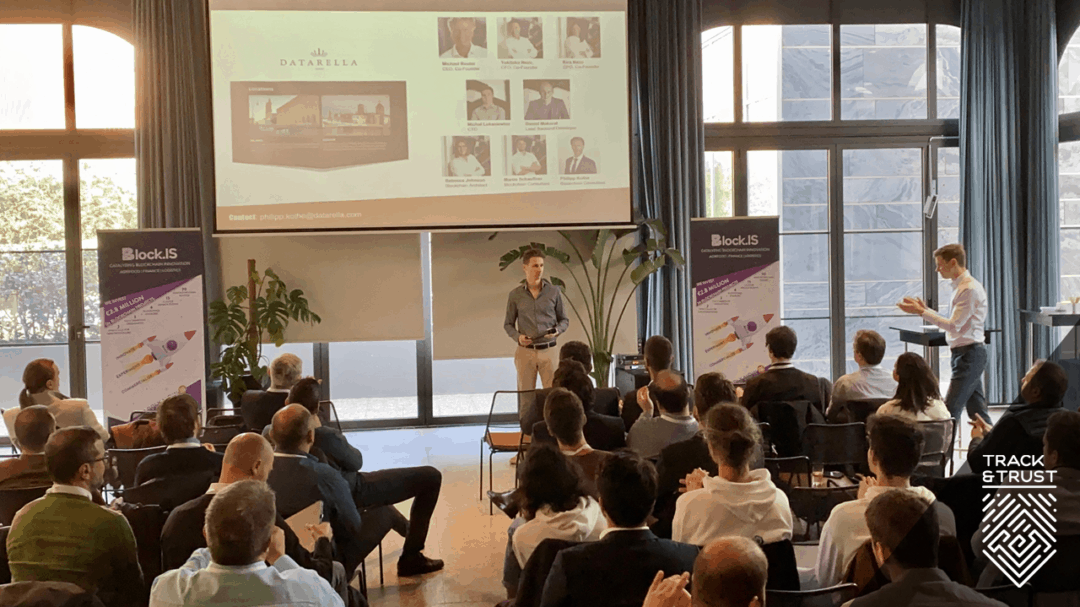
Track & Trust by Datatrella has been selected by the European innovation program Block.IS as one of the best blockchain logistics solutions. After two days of evaluation by experts from the business and technical domain in Istanbul, we are proud to announce that our project was selected to enter the next phase of the blockchain accelerator program funded by the European Union. The jury saw the tremendous impact of Track & Trust, bringing light into the logistic black box of complex, global supply chains.
The bushfires in Australia, the war in Libya or the Coronavirus outbreak in China. Our world is facing various challenges. However, besides the crises which are present in our daily news, over 200 million people in 81 countries are assessed for being in need of humanitarian assistance. A large percentage of these are concentrated in a small number of countries. For example in the Democratic Republic of Congo or Yemen, where millions of people are starving, have been displaced from their homes by war and suffer epidemic outbreaks of Ebola and Cholera took place.
But how do life-saving supplies – like food, water, medicine, and shelter – reach the people in need? Here is where the humanitarian supply chain comes into play. In the GIF below we tried to illustrate one, in a simplified way, but as you will see these networks are complex.
Just to give you some characteristics on these networks:
- They are composed of multiple stakeholders from NGOs, governments, and military to private corporations
- They operate over multiple countries/continents
- They are ad-hoc and work under high time pressure
- They operate in the most demanding environments, like warzones, and after natural disasters
- Its is very hard to forecast their demand since:
- Every crisis is unique
- A lack of historical data
Further, if tracking of goods and shipments is done at all, it’s documented by organizations individually and manually. This makes the humanitarian supply chain vulnerable to human error and fraud.
All these characteristics result in tremendous costs. It is estimated that around 80 percent of the expenditures of aid agencies are in the area of supply chain management.
Luckily, we offer a unique solution that allows the tracking of shipments from the beginning to the very end of the supply chain, bring transparency, trust, and collaboration to the humanitarian supply chain. We call it Track & Trust.
Our solution is made up of three key components:
- A user-friendly interface, proving the supply chain stakeholders an overview of the actual state and details of a shipment.
- A Private Ethereum Blockchain, which allows the immutable and tamper-resilient documentation of handover data and serves as a single point of truth. Noteworthy, data is managed and governed by the involved stakeholders themself, no external intermediary is needed.
- A hardware kit, composed of LoRa nodes and satellite communication technology, which allow the creation of an asynchronous mesh network, which enables to broadcast changes in custody of goods without being dependent on existing telecommunication infrastructure.
Our goal is to minimize the cost related to human error and fraud of these life-saving supply chains to maximize the value which arrives at the people in need.

Track & Trust was created to address the problems of the humanitarian supply chain. However, these supply chains are by far the only ones facing challenges like transparency and accountability in times of globalization. Just consider the supply chains of pharmaceutical, food or luxury products that are fighting against a multi-billion dollar counterfeit industry, demolishing profits and the trust of their customers.
If you want to learn more about our Track & Trust system feel free to contact us or to read more on our company blog.
“This project is funded by Block.IS (Blockchain Innovation Spaces) Horizon 2020 research and innovation programme Project No. 824509, under the funding framework of the European Commission.”
![]()
![]()
